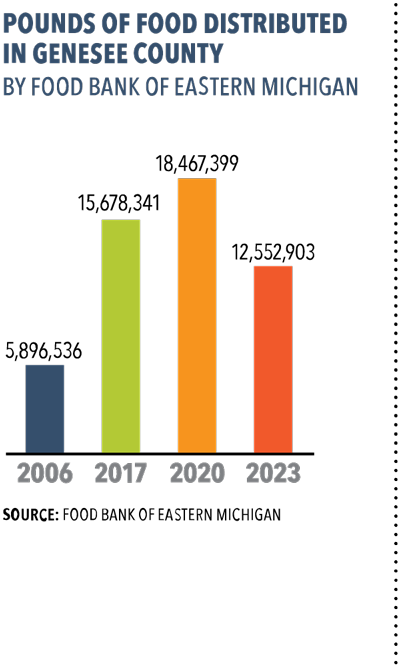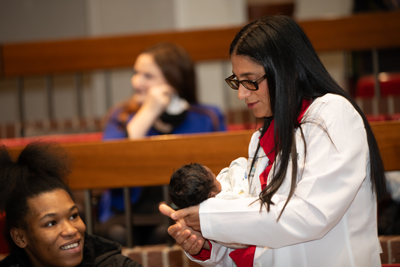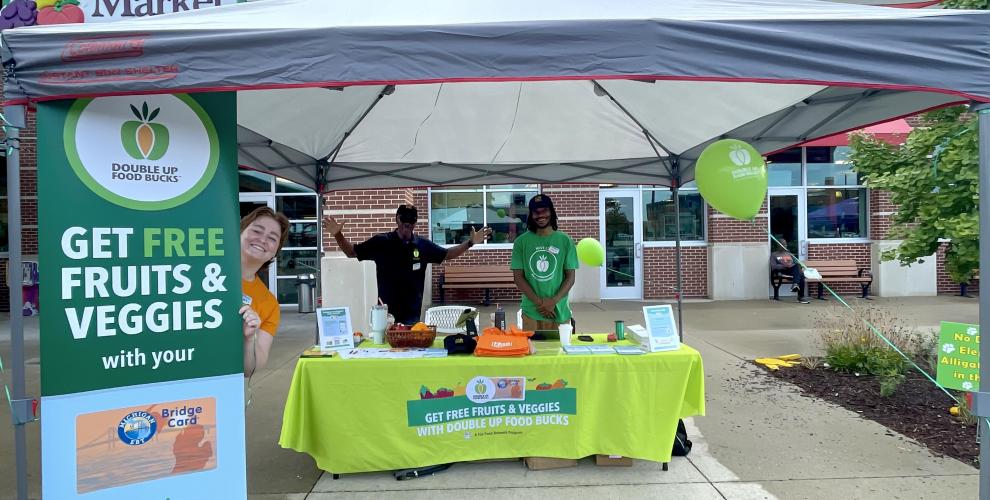“Trying to eat healthy is expensive. I’m a single mother, I’m working two jobs, and it’s just not enough. I need SNAP to make it through, and knowing you have Double Up Food Bucks means you got more fresh vegetables.”
— A Flint mom and Double Up Food Bucks shopper

THE ISSUE
A higher standard of living would mean more residents would have opportunities to lead a healthy life, advance in their careers, own a home and have access to a quality education, as well as cultural and recreational amenities. With over 69% of children living in poverty and median household income in the community falling well below the county and state, residents continue to express serious concerns about Flint’s standard of living. Addressing this will require: meeting the basic needs of residents; designing programs and resources that aim to break the cycle of poverty; and providing comprehensive support for vulnerable populations, such as uninsured residents and older adults.
THE RESPONSE
Nonprofit organizations are working with local government and philanthropies to offer resources to help people meet their basic needs. This includes: access to healthy food; options for low-cost health insurance; rent and utility assistance; and programs for vulnerable populations. (See the Resource Guide for more information.) Below are just a few examples of what’s available in the Flint community:
- The Double Up Food Bucks program, operated by the Fair Food Network, increases families’ access to fresh fruits and vegetables. Through this program, households that use a Bridge Card to purchase fruits and vegetables receive a dollar‑for‑dollar match for such purchases.
- In 2020, over one-third (37%) of Genesee County residents received Medicaid health care coverage. Enrollment in Healthy Michigan (Michigan’s Medicaid expansion program under the Affordable Care Act) increased more than 25% between December 2016 (29,223) and December 2020 (39,827).
- Organizations such as Catholic Charities of Shiawassee & Genesee Counties assist with rent and utility expenses.
- Senior centers, such as Brennan and Hasselbring, offer programs and events for older adults to engage, connect and stay active. The Valley Area Agency on Aging also supports seniors with a variety of services.
Unfortunately, in some cases, such as rent and utility assistance, the need far exceeds available resources. Longer-term, systemic solutions must be developed to eliminate the need for these programs.
Facts & Figures




DID YOU KNOW?
Rx Kids, led by Dr. Mona Hanna-Attisha at the Michigan State University College of Human Medicine, will provide cash payments to expectant mothers in Flint during pregnancy and throughout the first year of a child’s life. Through Rx Kids, which began enrollment in early 2024, families will be “prescribed” a total of up to $7,500 in cash. 

